
Transcription
You Know
This one is ALMOST as bad as "like." To my dismay, "you know" is a dear friend of "like." They always hang out together.
"It's, like, you know..."
(sqidoo.com, overused words and phrases)
"When the system eventually collapses, and the government comes with guns and confiscates, you know, everything in your home and your possessions, and then you fight off the raving-mad cannibalistic crowds... don't come crying to me. I told you: Get gold!"
—Glenn Beck
"You know, I was looking at some video tapes, on YouTube actually, looking at the President, then candidate Obama, going around Iowa about four years ago," Romney told a crowd in Clive at his last campaign rally before the state's caucuses. "He said he was going to get us working again. He talked about repairing the nation and repairing the globe, the world."
Those words neatly summarize-
"You know?"
====
2-21-12
These citations are examples of a centralized media. From Squidoo.com, we have an in denial assertion: "'Like' and 'you know' are always together." (That's a paraphrase.) Somebody realized what people are really saying when they repeatedly say "you know" all the time. According to Squidoo.com, saying things like "um" and "like" betrays nervousness.
So the top citation, taken off the Internet just last month, is an order as much as anything else. Obviously "like" is not always "hanging out" with "you know." But the centralized media tells us that they are always together.
The point of this exercise is to show that it's not the message itself that is centralized. The medium (media) itself is centralized around the campaign. In other words, it's not just one reporter or one magazine or one website or one TV channel; it's all of them. It's the reason why Megan Kelly at Fox News constantly has the "deer in headlights" look.
Other posts by this author
|
2025 dec 2
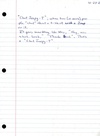
|
2025 sep 1
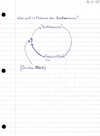
|
2025 aug 2

|
2025 jun 8

|
2025 jun 6

|
2025 jun 4
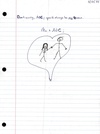
|
More... |
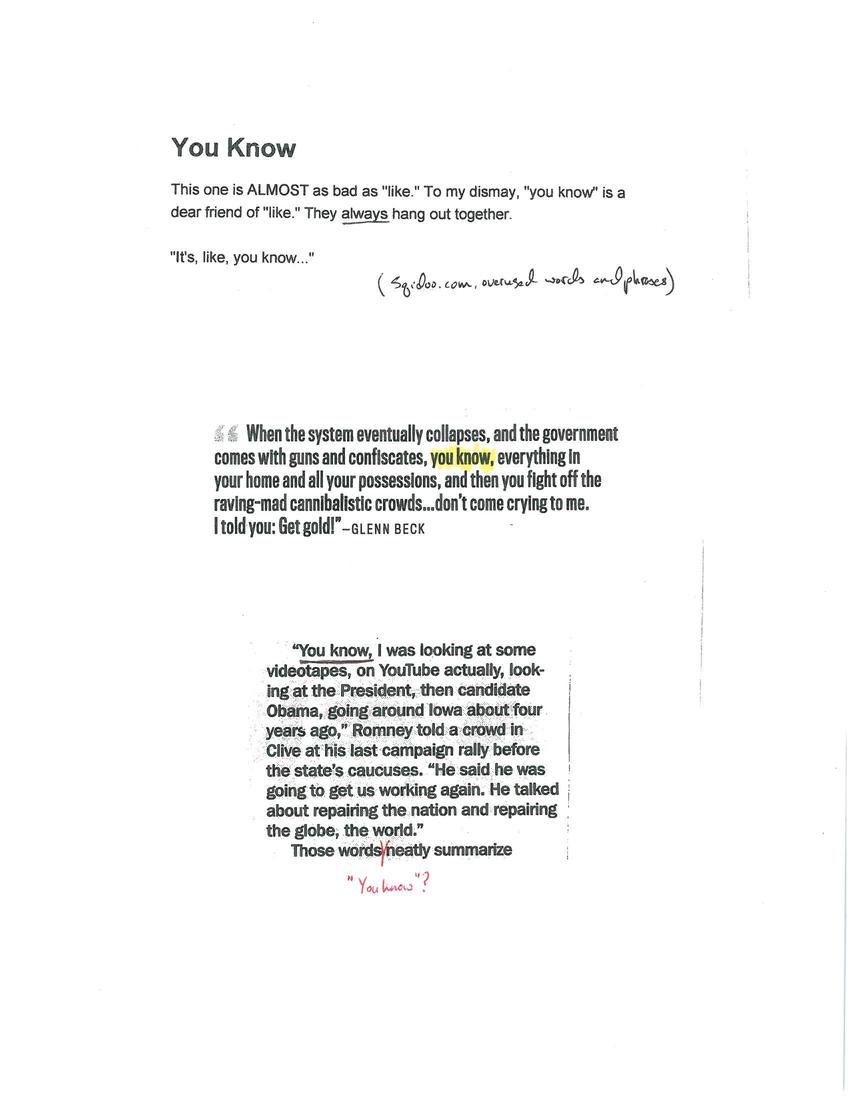
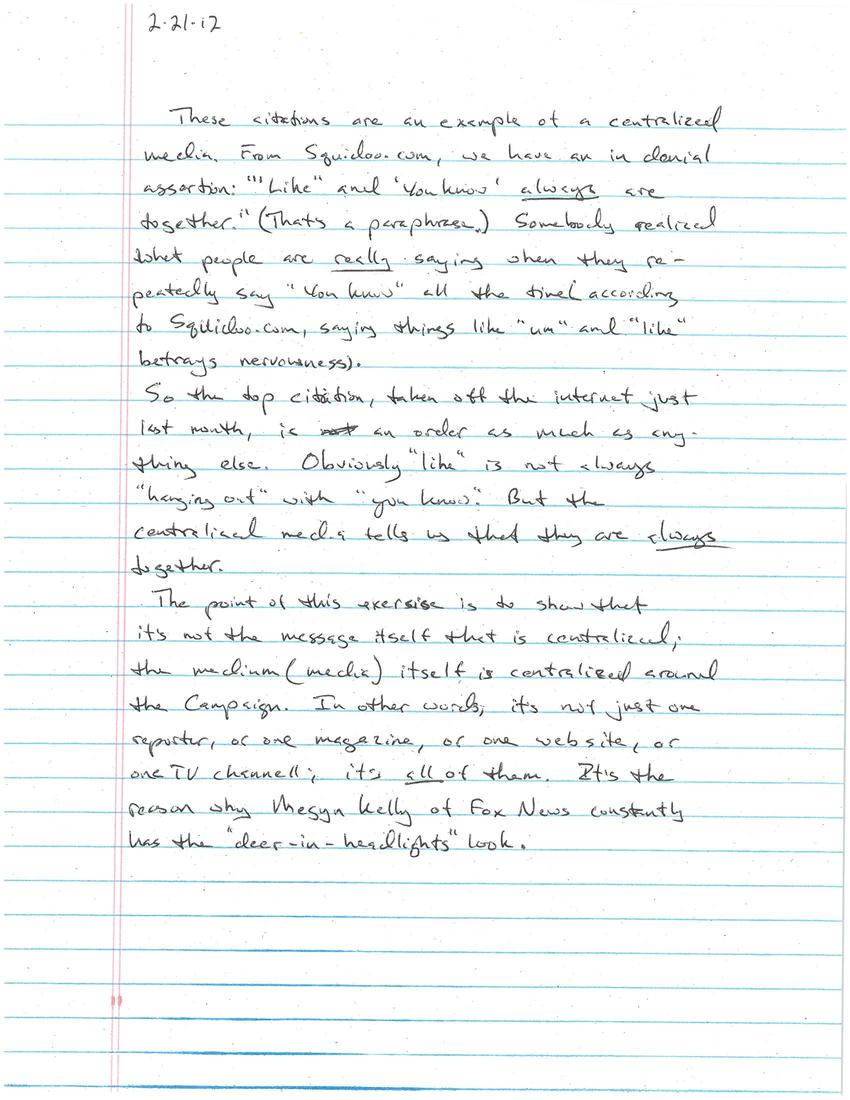

Replies